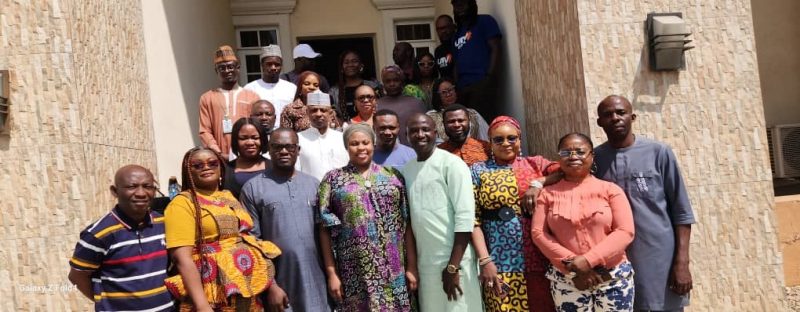Nigeria’s desire to use nature-based solutions as one of its primary mitigation and adaptation strategies to deal with the challenges posed by climate change explains why the nation views the development of a national roadmap to oversee the protection of its mangrove forest as crucial.

This approach is considered very essential because the country’s mangrove forest has a distinct advantage due to its exceptional capacity for sequestration and role in improving coastal resilience, among other things. It’s also because Nigeria’s mangrove forest has the potential to serve as a global climate financing hub through the carbon market.
Nigeria’s mangrove forest is said to be the largest in Africa and the third largest in the world, covering approximately 5% of the global mangrove forest. In 2022, during the Conference of Parties (COP27) to the United Nations Framework Convention on Climate Change (UNFCCC) that was hosted in Sharm el-Sheikh, Egypt, the Global Mangrove Alliance and the UN Climate High-Level Champions launched the Mangrove Breakthrough Initiative (MBI) as part of global efforts to secure the future of this invaluable ecosystem and build opportunities to raise the projected four billion dollars for sustainable financing by 2030.
Dr. Nkiruka Maduekwe, Director General of the National Council on Climate Change Secretariat (NCCCS), believes that Nigeria should leverage this laudable scheme to further its goals for nature-based climate solutions.
Her determination to find the best way to mobilise the nation for this noble task led her to convene a group of media specialists in Abuja on Friday, January 10, 2025, to brainstorm on how best to collaborate with the secretariat to fulfil her statutory responsibility, particularly in educating the public about climate change concerns and driving behavioural changes.
“It is important to start the year with this interactive session,” stated the Director-General, “where we can rub minds on the avenues to achieving the mandate of the NCCCS, most especially community engagement.”
Importance of the NCCCS-media relationship
Truth be told, the young lawyer’s gesture clearly reveals her thoughts on how she plans to steer the affairs of her organisation. She deserves some commendations because of her understanding of the near impossibility of enforcing compliance of the Climate Change Act (CCA 2021) without raising the issue of climate literacy, a core responsibility of the media as trusted conduits of information.
Goal 13 of the Sustainable Development Agenda calls for enhancing education, raising awareness, and building institutional and human capacity for early warning, adaptation, mitigation, and impact reduction of climate change. Given this, it is clear that the relationship between the NCCCS and the media acts as a bridge and increases the likelihood that climate change will be mainstreamed in all facets of the Nigerian economy.
Nigeria is among the nations most at risk from the devastating effects of climate change. The detrimental effects of these disasters are being felt by the populace today in the form of drought, rising temperatures, erosion, deforestation, flooding, desertification, and rising sea levels.
These impacts are further exacerbated by prior existing vulnerabilities, like the high rate of poverty. It is estimated that roughly 70% of Nigerians are dependent on climate-sensitive livelihoods, such as smallholder farmers, pastoralists, and fishing communities. The country has a huge population of over 220 million, which is projected to reach over 400 million by the year 2050.
In particular, these are some of the issues that the NCCCS is facing and that the media must help them with. The secretariat has released a programme plan that centres on “Amplifying Nature-Based Climate Solutions” as a strategic roadmap for fulfilling its mandate, which is good news.
Conclusion
Reviewing the activities template discloses that the secretariat has done a commendable job of suggesting various commendable projects. These include the youth climate summit, tree planting on Earth Day and Environmental Day, capacity building for MDAs to operationalise the climate change desk, a mangrove art exhibition, climate negotiator training, a town hall meeting in Cross River State, the climate security summit, and UNFCCC COP 30, which will be held in Brazil later in November.
However, it is crucial to note that while the engagement identified several ways to accomplish this partnership, it also acknowledged that there may be gaps, like insufficient money, which could be a barrier to progress.
Without further ado, the NCCCS has made a promising start in rolling out its action plan. Nonetheless, financing climate education is vital to developing civic awareness, and this is one truth that must be kept dearly to heart in order to avoid fitting a square peg into a round hole.
By Etta Michael Bisong, Abuja
